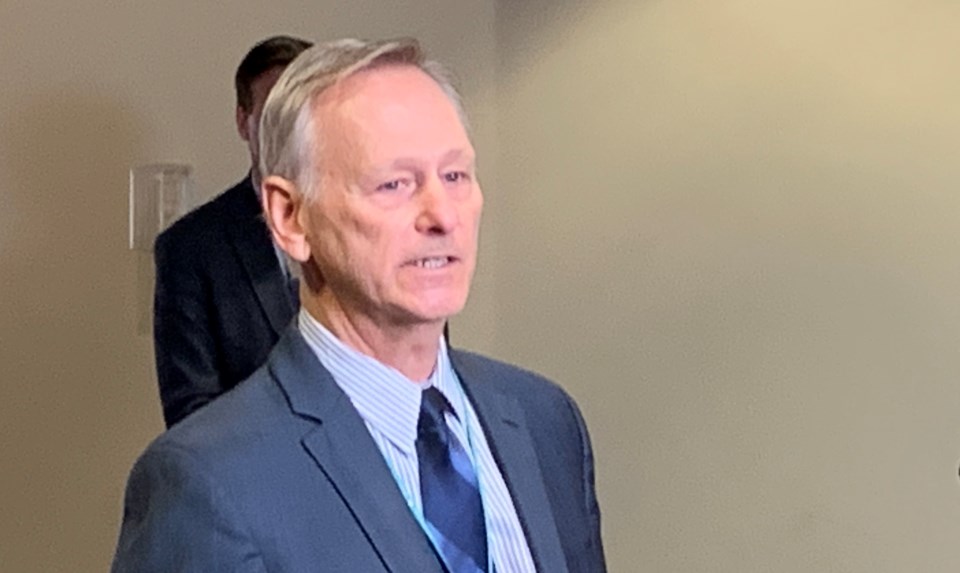Dr. Jim Chirico, the local Medical Officer of Health recently spoke about the federal government's plan to reopen Canada's land borders to fully vaccinated U.S. citizens and permanent residents August 9.
Although local health officials often take the opportunity to weigh in on such matters as they affect their districts, it is clear from the discussion among North Bay Parry Sound District Health Unit experts many approaching milestones in the public health campaign geared toward emerging from the COVID-19 pandemic will be determined at the provincial and federal levels and implemented with the guidance of the local health units.
"It's premature," stated Chirico when asked about the opening of the border to non-essential travel, "given the concerns there are about the Delta variant. Cases are increasing in the United States and they're increasing — especially rapidly — in states that don't have high vaccination rates."
There is no date yet set for reciprocal border crossings for fully vaccinated Canadians to enter the U.S. The plan also calls for Canada's borders to open to fully vaccinated travellers from other countries, Sept. 7.
There is also a looming labour stoppage: Canadian border workers vote in favour of striking as soon as Aug. 6, union says
"We need to be very careful of what we open and what we don't open," added Chirico. "This is not over. Areas where you see they aren't following precautions — we're seeing increasing cases [in those places] in Canada.
"I would not be in favour of it [reopening the land border] just yet. We need to follow it very closely."
See related: Some Canadians frustrated they still can't cross U.S. land border
Later during the press conference, Dr. Chirico was asked about what comes next following Stage Three of the Roadmap to Reopen Ontario.
"We're asking the same thing, we don't know," he admitted. "Once we do find out, we will pass it along. It's usually a provincial announcement. They would be finalizing that, we don't have that information [yet]."
As Stage Three began July 16, the prescribed 21-day period between stages is up Friday, August 6.
See also: Capacity limits are out, but masks will stay on after Step 3 of Ontario's reopening
Ontario has identified vaccination benchmarks to exit the roadmap:
"The province will remain in Step Three for at least 21 days and until 80% of the eligible population aged 12 and over has received one dose of a COVID-19, and 75% have received their second, with no public health unit having less than 70% of their eligible population aged 12 and over fully vaccinated.
"Other key public health and health care indicators must also continue to remain stable. Upon meeting these thresholds, the vast majority of public health and workplace safety measures will be lifted."
Ontario is approaching the goal for those with two doses despite several cohorts with much lower participation levels than the provincial average. The 12–17 age group — made eligible only in late spring — is at 48.4 per cent fully vaccinated, while the 18–29 and 30–39 age groups are at 55.8 per cent and 61.9 per cent respectively. For full Ontario vaccination figures, click here.
In the North Bay Parry Sound District, as of Tuesday, 77 per cent 12 and up have had at least one dose, while 67 per cent have had two.
See also: Health Unit eyes vaccination targets to exit Step Three
Dr. Chirico continued to advocate for more people to get their vaccinations for health reasons, also saying it will be a key factor in how schools are run this fall. The Health Unit has said it does not favour mandatory vaccinations as a condition for students to attend.
"The numbers are there to help get to a level where we can help prevent people from being hospitalized, from people dying, from ending up on ventilators," observed Chirico. "We came very close during the third wave to having the health care system get to a point where it could have been overwhelmed. We don't want to go there again."



